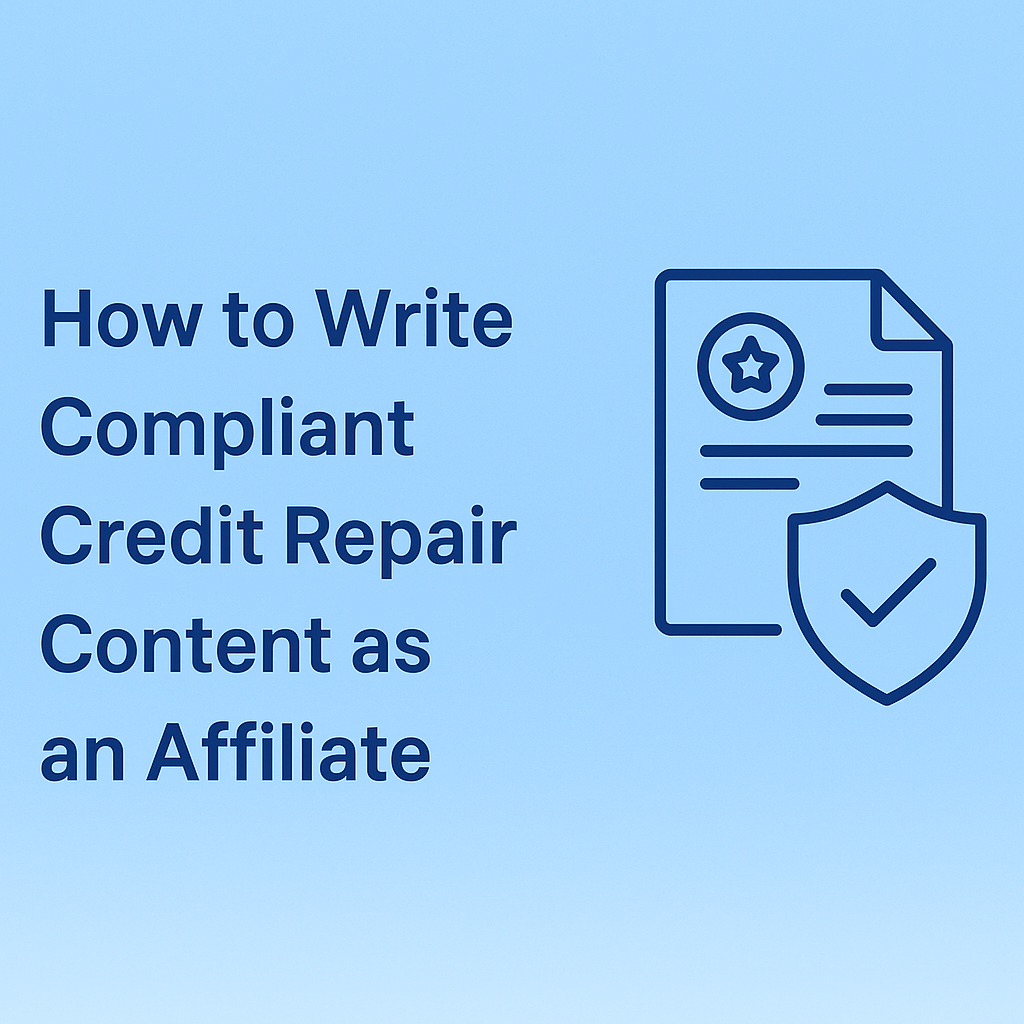Writing content in the credit repair niche requires accuracy, clarity, and compliance. Since credit repair involves consumer financial rights and sensitive personal information, affiliates must follow ethical and legal guidelines. Producing compliant content protects your reputation and ensures trust with your audience—while also keeping platforms and affiliate partners confident in your marketing approach.
Understand Compliance Basics
Credit repair is regulated by laws like the Credit Repair Organizations Act (CROA) and the Fair Credit Reporting Act (FCRA). As an affiliate, you must avoid claims that suggest guaranteed results or overnight improvements. Compliance protects consumers and prevents misleading promises. Educate instead of selling aggressively.
Never Promise Guaranteed Results
Avoid statements like “We guarantee to remove negative items in 30 days” or “Your score will increase instantly.” Credit outcomes vary based on individual reports and financial behavior. Instead, use language like “Many clients see improvements over time” or “Professionals help dispute inaccurate items and guide credit improvement.”
Focus on Education, Not Miracles
Compliant content teaches, guides, and empowers. Explain how credit scores work, what affects credit, how disputes operate, and why professional review helps. When people understand the process, they trust your recommendations more. Avoid hype—prioritize clarity and value.
Emphasize Consumer Participation
A compliant message reminds users they play a role. Improving credit is a shared journey. Use phrases like “Credit improvement works best when combined with smart financial habits” and “Professional support can help guide you through the process.” This keeps content realistic and responsible.
Include Required Disclosures
If you’re earning a commission, disclose it clearly. Add a simple notice like “This page contains affiliate links, and I may earn a commission at no extra cost to you.” Transparency builds trust and complies with FTC guidelines.
Avoid Legal Language Unless Qualified
Do not act like a lawyer or imply legal expertise. Never advise users to take actions like suing bureaus or disputing accurate information. Your role is to educate and guide—not practice law. Keep content focused on steps, habits, and professional support.
Highlight Ethical Support and Resources
Encourage readers to check their reports, track credit habits, and seek legitimate credit tools. Ethical affiliates educate on budgeting, payment history, utilization, and building credit responsibly. The more trustworthy your content, the stronger your long-term brand.
Final Thoughts
Compliant credit repair content builds long-term authority and trust. By staying truthful, avoiding promises, disclosing affiliate relationships, and focusing on education, you create value for your audience and maintain ethical marketing standards. When you combine compliance with genuine guidance, your credibility grows—and so does your affiliate income.

